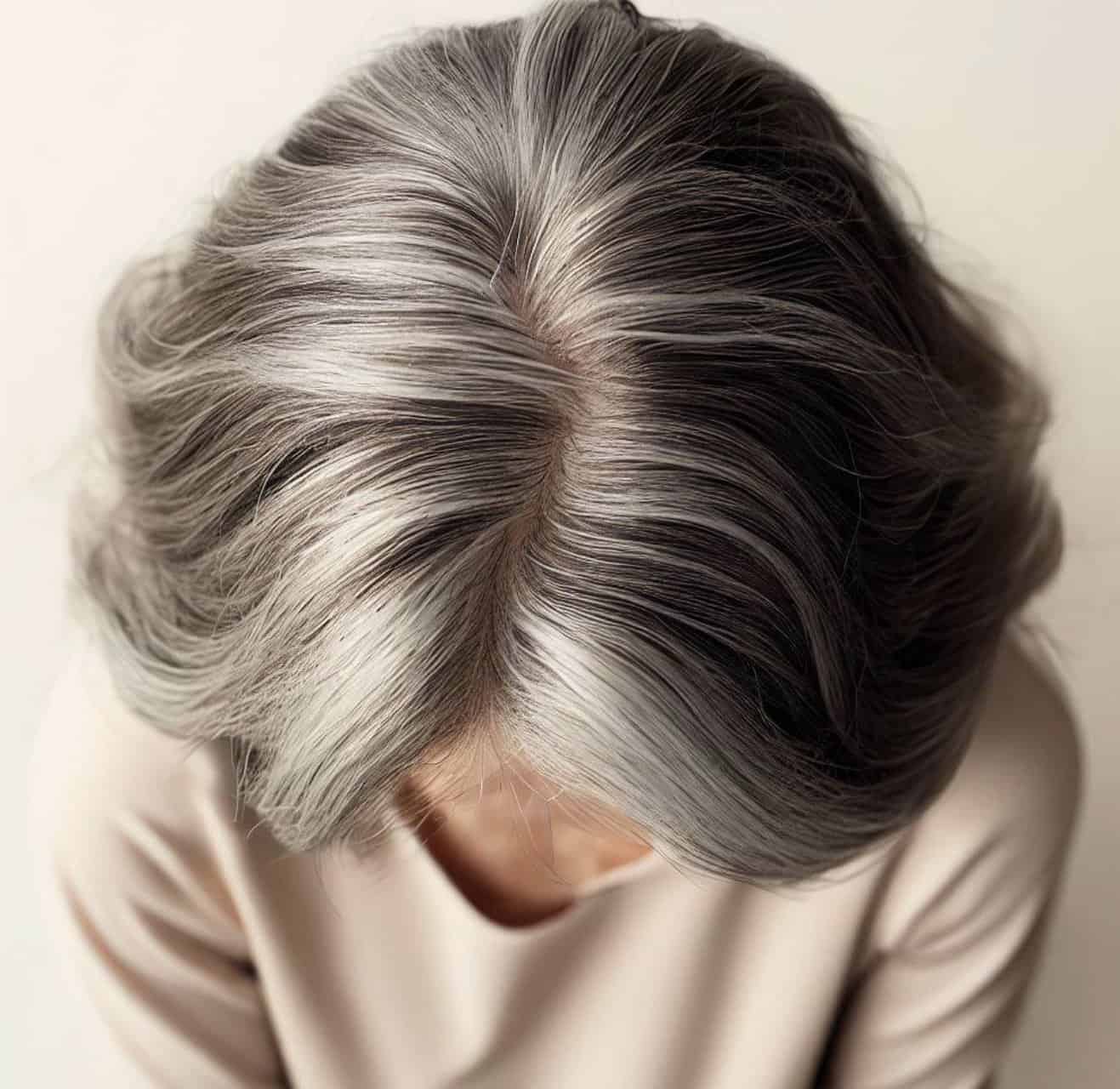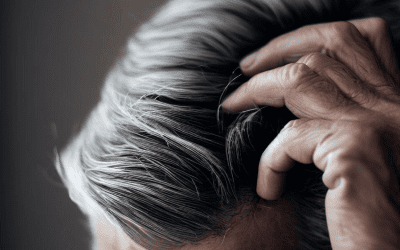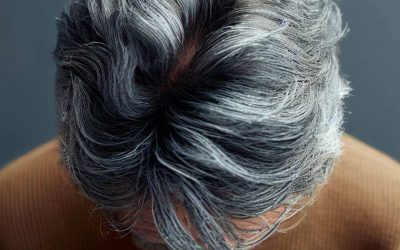As we age, one of the most visible signs of getting older is the appearance of grey hair. While this is a natural process, many people are eager to find ways to reverse grey hair and maintain their youthful appearance. In this comprehensive guide, we will explore the causes behind grey hair, the role of stress, and potential solutions to reverse the greying process.
Understanding the Science of Hair Colour
To understand how to reverse grey hair, it is important to first comprehend the science behind hair colour. Hair colour is determined by melanocytes, which are pigment-producing cells present in the hair follicles. These melanocytes create melanin, the pigment responsible for the colour of our hair, skin, and eyes. The amount and combination of melanin determine our hair colour, whether it is brown, black, blonde, or red.
The Natural Process of Greying Hair
As we age, our hair follicles gradually lose the melanocyte stem cells responsible for producing melanin. This leads to a decline in the production of melanin and ultimately results in the appearance of grey hair. Grey hair occurs when there is a reduced amount of melanin, while white hair completely lacks melanin.
Scientists have theorized several potential reasons for the decline in melanocyte stem cells. It could be attributed to wear and tear, damage to the cells, or a breakdown in the support systems that maintain their function. Additionally, genes play a role in determining the rate at which melanin is produced, further affecting the greying process.
The Role of Stress in Grey Hair
While grey hair is a natural part of the ageing process, recent studies have shown a correlation between stress and the acceleration of the greying process. Researchers have discovered that the body’s fight-or-flight response, triggered by stress, can impact the melanocyte stem cells and lead to premature greying.
The sympathetic nervous system, responsible for the fight-or-flight response, extends into hair follicles throughout the body. When stress occurs, the chemical norepinephrine is released into the follicles, affecting the melanocyte stem cells. This causes the rapid conversion of these stem cells into pigment cells, leading to their depletion in the hair follicles. Without sufficient stem cells to produce new pigment cells, the hair turns grey or white.
Dr. Ya-Chieh Hsu of Harvard University, who led a study on stress and greying hair, noted the surprising impact of stress on the body. After just a few days of stress, all the melanocyte stem cells were lost, rendering the regeneration of pigments impossible. This damage is permanent, highlighting the importance of managing stress for those seeking to prevent or reverse grey hair.

Image Source: Jay Yuno / iStock / Getty Images Plus
Potential Solutions to Reverse Grey Hair
Scientists have made progress in understanding the underlying mechanisms and potential interventions. One recent study involving mice identified three specific genes that help maintain stable numbers of melanin-producing cells. By manipulating these genes, researchers were able to prevent or reduce grey hair in the mice. Although these findings are promising, no product based on this research is currently available for human use.
Furthermore, there is a revolutionary product by GR-7, whose unique formula stimulates melanin production and reverses the process of hair greying. This product offers a potential solution for those seeking to reverse the appearance of grey hair. Incorporating GR-7 into your hair care routine may help restore the natural colour of your hair and promote a more youthful appearance.
Other Factors Influencing Grey Hair
Aside from stress and genetics, other factors can contribute to the greying process. For example, smoking has been linked to premature greying. A study conducted in 2013 found that smokers, on average, experienced grey hair three years earlier than non-smokers. It is believed that smoking causes chemical changes that damage the body’s melanin-producing cells.
Additionally, exposure to free radicals, which are damaging chemicals caused by stress, inflammation, smoking, or radiation, may play a role in destroying melanocyte stem cells and accelerating the greying process. However, further research is needed to establish a conclusive link between free radicals and grey hair.
Maintaining Healthy Hair
While reversing grey hair may not be entirely possible, there are several ways to maintain healthy hair and promote a youthful appearance. Proper hair care practices, such as regular washing, conditioning, and avoiding excessive heat or chemical treatments, can help keep your hair in good condition. Additionally, maintaining a balanced diet rich in vitamins and minerals, particularly those essential for hair health like vitamin B12, biotin, and iron, can contribute to overall hair health.
Conclusion
Grey hair is a natural part of the ageing process, but the desire to reverse its appearance is common. Managing stress, adopting a healthy lifestyle, and considering innovative solutions like GR-7 Professional can contribute to maintaining the natural colour of your hair. Ultimately, whether you choose to embrace your grey hair or seek ways to reverse it, the most important thing is to feel confident and comfortable in your own skin.




